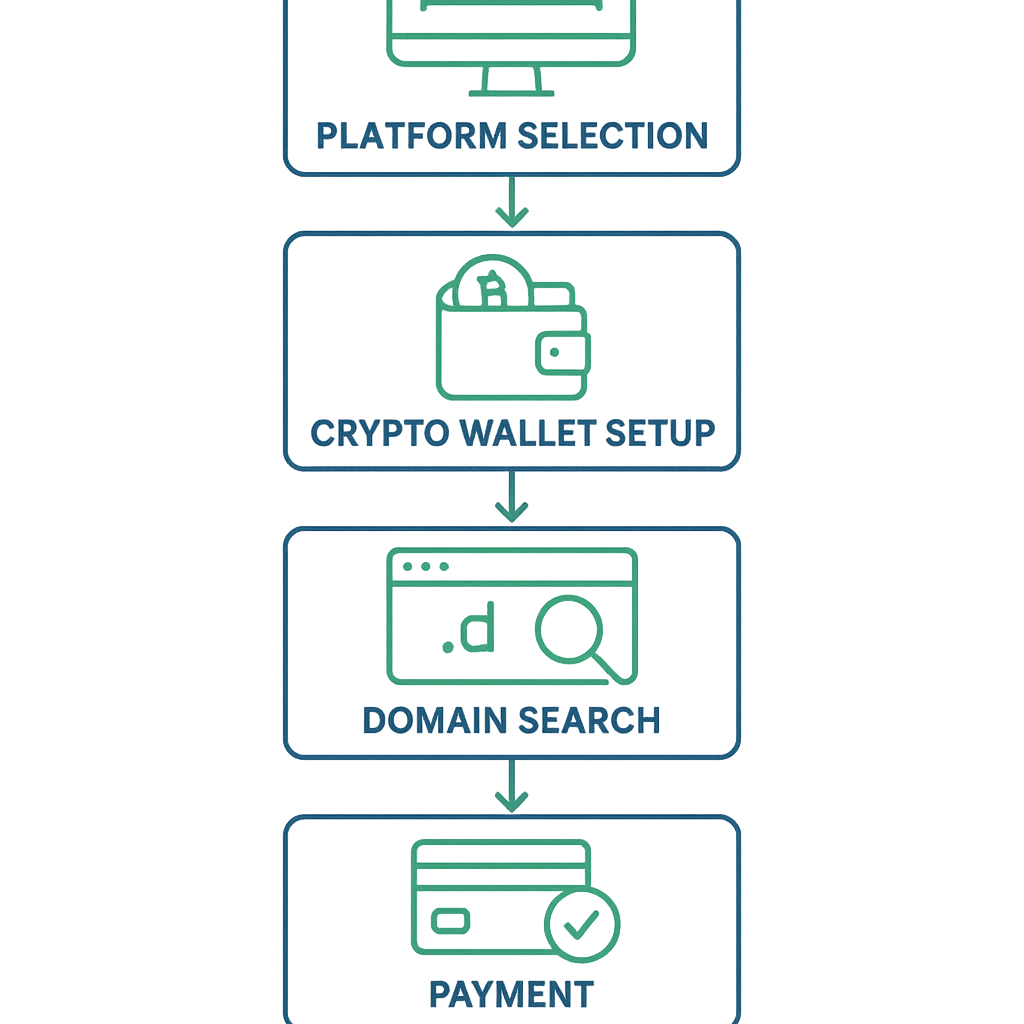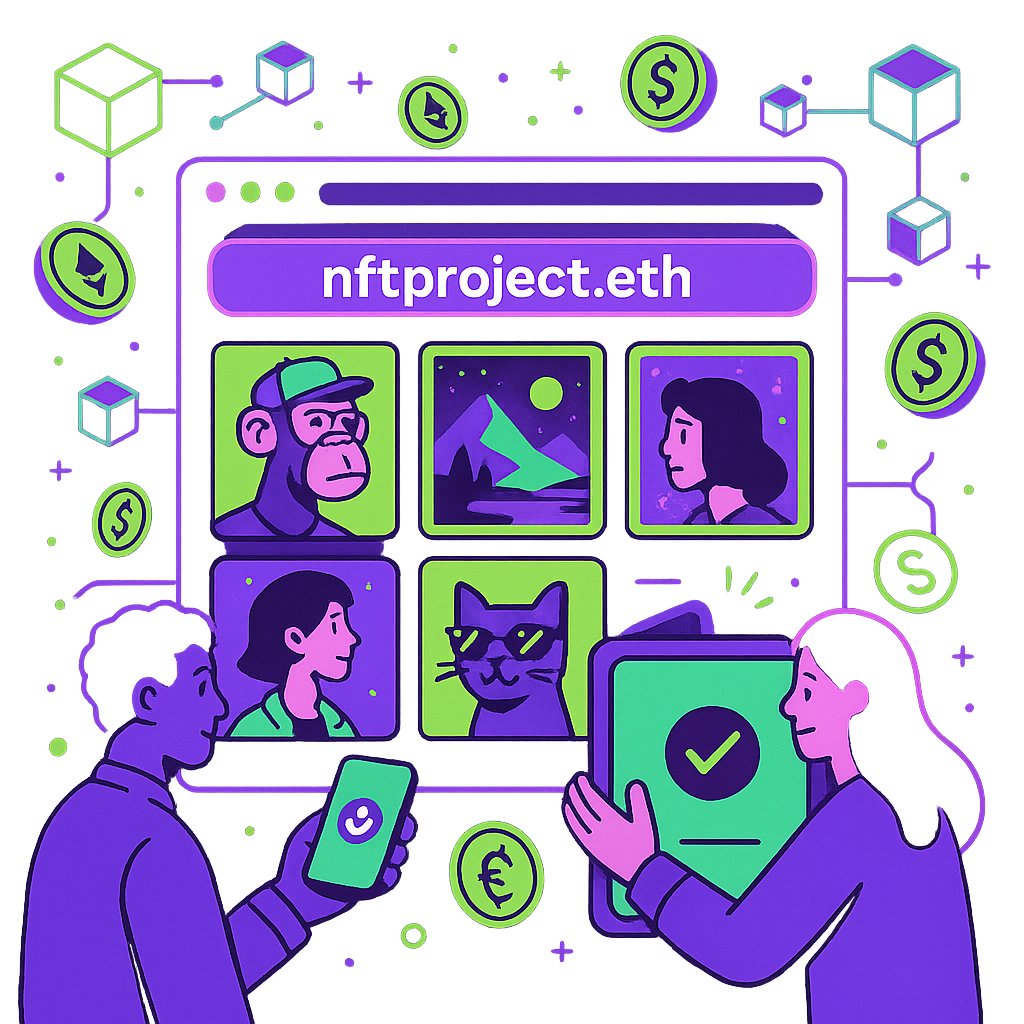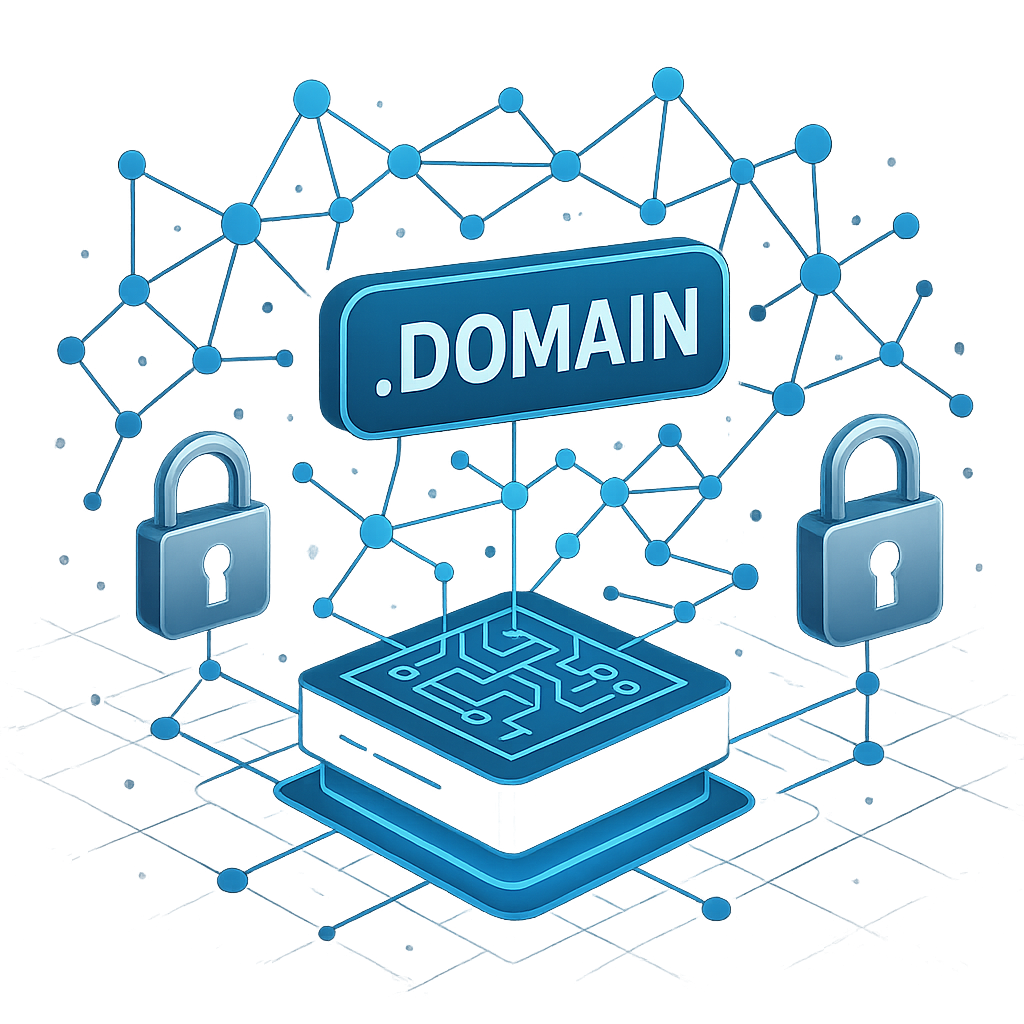Alright, so decentralized domains are basically flipping the script on how we claim our little corner of the internet. Built on blockchain tech (yeah, that crypto stuff), they’re a game-changer. Wanna know how to register a decentralized domain without losing your mind? Stick with me—I’m gonna break it down, no fluff. Unlike the usual domains that some big corporation can yank away, these bad boys give you legit ownership, shrug off censorship, and beef up security with Web3 naming tricks. They’re like the rebel flag of the online world.
This guide? It’s for anyone—total newbies or tech geeks itching to dive in. I’ll walk ya through grabbing your own domain step by step, sizing up the big blockchain domain players, and tossing in tips you can actually use. Whether you’re eyeing a flashy Web3 identity for yourself or sniffing out an investment angle, getting a grip on this stuff is your ticket to riding the next wave of the internet. Trust me, it’s wild.
Table of Contents
- What Even Are Decentralized Domains?
- Why Decentralized Domains Are Kinda Awesome
- Your Step-by-Step Game Plan for Registration
- Picking the Right Platform (Yeah, It Matters)
- Sorting Out Registration Hiccups
- Keep Your Domain Safe—Don’t Be That Guy
- Making Cash with Decentralized Domains? Let’s Talk
- Real People, Real Stories
- Tools and Resources You’ll Actually Use
- Got Questions? I’ve Got Answers
- Last Bits of Advice Before You Dive In
Why Decentralized Domains Are Kinda Awesome
So here’s the deal with decentralized domains—they don’t play by the old-school DNS rules. They’re powered by blockchain, which means you’ve got the reins on your online identity. No middleman to mess with you. If you’re poking around on how to register a decentralized domain, lemme tell ya, the perks are legit—stuff like dodging censorship, owning your name for real with NFTs, and hooking right into Web3 apps without a hitch. It’s next-level.
- No Censorship Drama: Good luck to anyone trying to shut your domain down—ain’t happening easy with centralized overlords out of the picture.
- You’re the Boss: It’s yours, locked in with NFTs or tokens chilling in your wallet.
- Tighter Security: Blockchain cuts down on sketchy hacks or someone swiping your domain outta nowhere.
- Web3 Vibes: Ties right into wallets, DApps, and decentralized sites like it’s no biggie.
Your Step-by-Step Game Plan for Registration

Look, registering a decentralized domain isn’t rocket science if you’ve got a roadmap. I’m laying it out here for anyone just starting out—no judgment if you’ve never touched crypto before. This’ll guide you through the nerdy bits of decentralized domain registration for beginners and help you lock in that Web3 identity without breaking a sweat. Let’s go.
- Pick a Platform That Fits: Check out spots like ENS, Unstoppable Domains, or Handshake—each’s got its own flavor, so choose what clicks for you.
- Get a Crypto Wallet Ready: Grab something like MetaMask to stash your domain NFT and handle payments. Takes a sec to set up.
- Hunt for a Name: Hop on the platform’s search tool and snag a cool name with funky endings like .eth or .crypto before someone else does.
- Seal the Deal: Fork over the fees—usually in crypto—and mint that domain as an NFT to prove it’s yours for keeps.
- Set Up the Details: Tweak your domain to point to wallet addresses, IPFS sites, or whatever decentralized app you’re messing with.
- Lock It Down: Don’t slack—back up those private keys and maybe get a hardware wallet to keep things safe from creeps.
Picking the Right Platform (Yeah, It Matters)
Okay, figuring out how to register a decentralized domain starts with nailing down where to do it. Not all blockchain domain platforms are created equal, ya know? Some are a breeze for newbies; others might make your head spin if you’re just dipping your toes into decentralized domain registration for beginners. Take a peek at the options and match one to your vibe.
| Platform | Blockchain | Coolest TLDs | Cost Breakdown | How Easy? |
|---|---|---|---|---|
| ENS | Ethereum | .eth | Gas fees + Yearly Renewal | Takes some getting used to |
| Unstoppable Domains | Ethereum, Polygon | .crypto, .zil | Pay Once, Done | Super Simple |
| Handshake | Handshake Blockchain | .hns | Bid at Auction | Kinda Tricky |
| 3DNS | Optimism L2 | .box, .com | Depends on the Day | Pretty Chill |
Sorting Out Registration Hiccups
Bummer, but true—running into snags while learning how to register a decentralized domain happens to everyone, especially if you’re new at this. I’ve got some fixes for the usual headaches people face with decentralized domain registration. Let’s troubleshoot together.
Wallet Won’t Connect, Ugh
Wallet connection fails are the worst, right? Usually it’s ’cause you’ve got the wrong wallet or your browser extension’s out of date. Make sure you’re rocking something like MetaMask that plays nice with the platform. Oh, and update your browser or extension—trust me, that fixes like 90% of these headaches.
Why’s My Transaction Taking Forever?
Transactions dragging or flat-out failing can happen when the blockchain’s jammed up with traffic. Gas fees spike, and you’re stuck waiting. Keep an eye on blockchain explorers to track what’s up with your transaction. If it’s urgent, maybe bump up the gas fee to cut the line a bit. Sucks, but it works.
Keep Your Domain Safe—Don’t Be That Guy
Yo, after you’ve figured out how to register a decentralized domain, keeping it secure is non-negotiable. These blockchain domain platforms lean hard on private keys for ownership, so if you lose ’em or someone snags ’em, you’re toast. Protect that stuff like it’s your last slice of pizza.
- Go Hardware: Stash those private keys on a Ledger or Trezor—way safer than just leaving ’em on your laptop.
- Back It Up, Like Now: Write down your wallet recovery phrases and store ’em offline somewhere nobody’s gonna snoop.
- Double Down with 2FA: If the platform offers two-factor authentication, turn it on. Extra hassle, sure, but worth it.
- Skip Shady Wi-Fi: Don’t mess with transactions on public networks—too easy for someone to spy and jack your info.
Making Cash with Decentralized Domains? Let’s Talk
Beyond just grabbing a domain, there’s room to play with staking and cashing in on decentralized domains. Some platforms let you stake your domain or tokens for sweet rewards. I’m tellin’ ya, it can turn into a nice little side hustle in the Web3 space if you play your cards right. Passive income, anyone?
Tip: Heads up—staking decentralized domains might score you some perks, but dig into the risks for each platform before jumping in blind.
Real People, Real Stories

Hearing how others pulled off registering a decentralized domain can get you pumped to try it yourself. Tons of folks and even big projects have jumped on blockchain domain names for all sorts of reasons. Let’s peek at one that caught my eye.
NFT Project That Nailed It
So this NFT crew snagged a .eth domain on ENS to make wallet addresses dead simple for their fans. Gas fees were a pain at first—honestly, who hasn’t dealt with that nonsense?—but they got it working smoothly with their marketplace. Made it way easier for users to hop in and trade without the techy headaches.
Tools and Resources You’ll Actually Use
Navigating how to register a decentralized domain ain’t so bad if you’ve got the right gear. I’m dropping a short list of killer tools and guides—perfect for decentralized domain registration for beginners. These’ll smooth out the bumps for sure.
- ENS Docs: Straight from the source, these guides cover Ethereum domain registration like pros.
- Unstoppable Domains Support: Their help center’s packed with beginner-friendly walkthroughs and answers to FAQs.
- MetaMask Wallet: Hands-down the go-to for linking up with blockchain domain platforms without a fuss.
- Community Hangouts: Places like Reddit’s r/ENS or Discord groups are gold for real-time tips and chats.
Got Questions? I’ve Got Answers
Hey, if you’ve got burning questions about how to register a decentralized domain, you’re not alone. I’m tackling the stuff I hear all the time, especially for beginners just stepping into the blockchain domain world. Let’s clear up a couple big ones right now.
So, What’s a Decentralized Domain Anyway?
Basically, it’s a name tied to a blockchain that you actually own—no big registrar breathing down your neck like with regular domains. They’re tough against censorship and often double as your Web3 ID or wallet address. Pretty slick, right?
Which Platform Won’t Make Me Cry as a Beginner?
I’d say Unstoppable Domains is your safest bet if you’re new. Their interface doesn’t feel like a puzzle, you pay once and done—no renewals—and there’s no messy gas fee drama like with ENS. It’s just less of a headache overall.
Last Bits of Advice Before You Dive In
Getting the hang of how to register a decentralized domain is like unlocking a secret door to the decentralized web. Suddenly, you’ve got real control over your online self. Start with a platform that doesn’t intimidate you, get that crypto wallet squared away, and follow the steps I’ve laid out—easy peasy. With Web3 domain services popping off, this ain’t just a purchase; it’s like staking a claim in the internet of tomorrow. Exciting stuff!
References
- Understanding Decentralized Domains and Their Benefits
- Understanding Decentralized Domains and Their Benefits
- Understanding Decentralized Domains and Their Benefits
- Understanding Decentralized Domains and Their Benefits
- Comparing Blockchain Domain Registration Platforms
- Comparing Blockchain Domain Registration Platforms
- Comparing Blockchain Domain Registration Platforms
- Comparing Blockchain Domain Registration Platforms
- Troubleshooting Common Registration Issues
- Troubleshooting Common Registration Issues
- Troubleshooting Common Registration Issues
- Security Best Practices for Domain Ownership
- Security Best Practices for Domain Ownership
- Security Best Practices for Domain Ownership
- Security Best Practices for Domain Ownership
- Staking and Monetizing Decentralized Domains
- Real-World Case Studies
- Real-World Case Studies
- Real-World Case Studies
- Essential Resources and Tools
- Essential Resources and Tools
- Essential Resources and Tools
- Essential Resources and Tools
- Frequently Asked Questions
- Frequently Asked Questions
- Final Tips and Next Steps for Decentralized Domain Registration

Leave a Reply